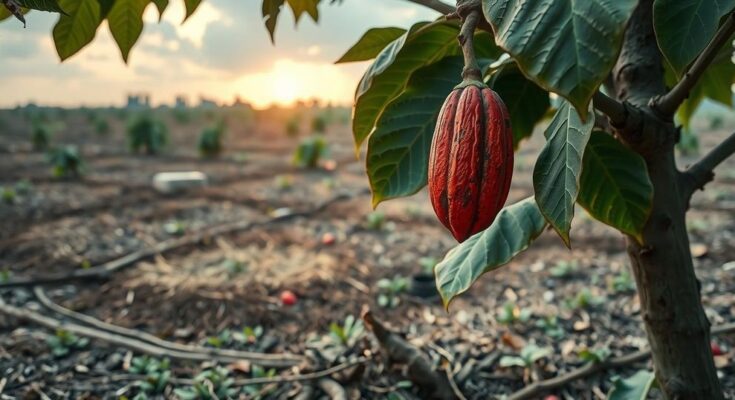Climate change is adversely affecting cacao crops in West Africa, with rising temperatures unprecedentedly extending the growing season. The impact includes reduced cacao quality and quantities, contributing to soaring chocolate prices globally. These changes threaten the viability of cacao farming, particularly in Ivory Coast and Ghana, two of the world’s top producers.
Research indicates that climate change is severely impacting cacao production in West Africa, primarily in countries like Ivory Coast and Ghana, which are among the leading producers of cocoa. Rising temperatures have been noted to extend the growing season by an alarming three weeks, exacerbating the challenges faced by farmers, including heat stress, pest outbreaks, and erratic rainfall patterns. Last year, unprecedented heat led to temperatures exceeding 32 degrees Celsius on 42 different days, underscoring the growing pressure on cacao yields.
In summary, climate change poses a significant threat to West Africa’s cacao crops, with rising temperatures and changing weather patterns contributing to reduced crop quality and productivity. As a result, the global chocolate industry is bracing for increased prices and potential shortages. Urgent action is required to address these climatic challenges to preserve cacao farming and ensure the sustainability of chocolate production.
Original Source: www.ndtv.com




